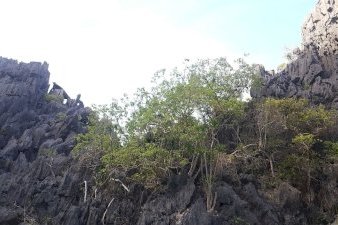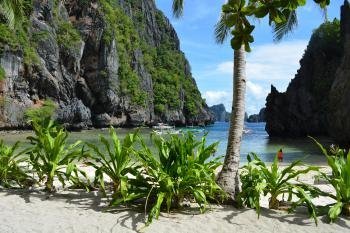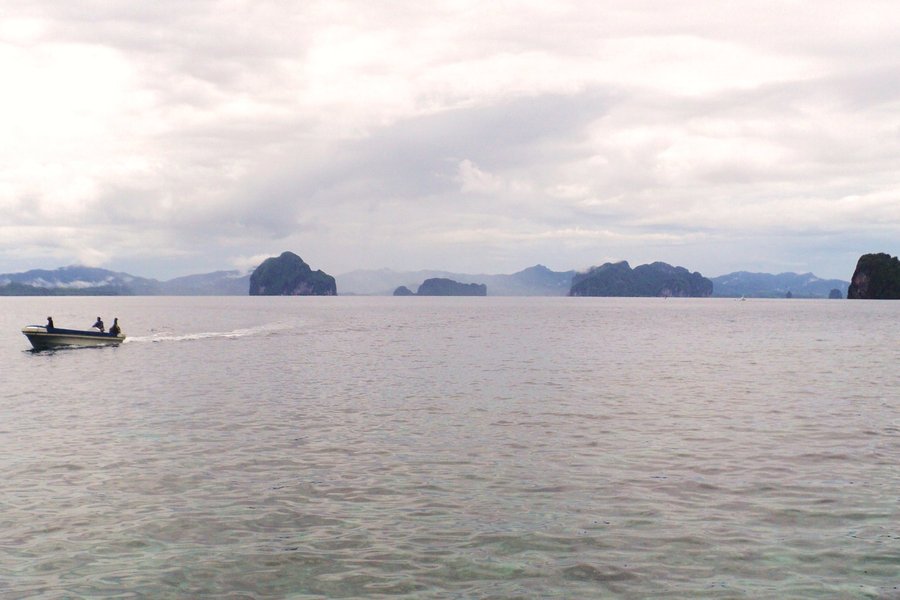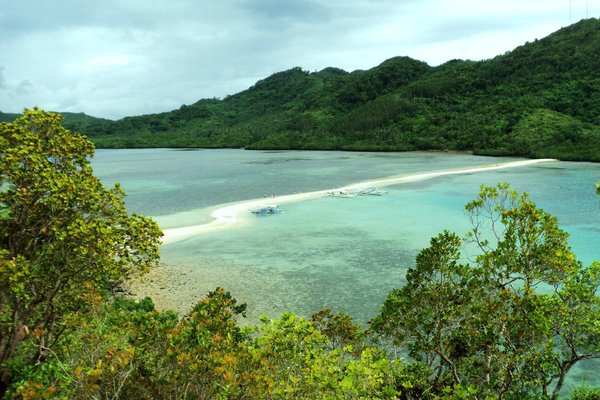Philippines
El Nido-Taytay Protected Area
El Nido-Taytay Manage Resource Protected Areas covers 3 marine habitats (seagrass, coral reefs, estuarine) and 5 forest ecosystems (lowland evergreen, semi-deciduous forest, limestone forest, beach forest and mangrove forest) of the islands of Bacuit Bay and the northwestern tip of Palawan island.
The towering karst islands are dotted with beaches, surrounded by clear waters and a diverse variety of fish, marine mammals, turtles and corals. The forested areas are home to endemic and threatened bird species, with the cliffs cradling the swiftlet’s nest, prized for the famed soup.
Site Info
Official Information
- Full Name
- El Nido-Taytay Managed Resource Protected Area (ID: 5034)
- Country
- Philippines
- Status
-
On tentative list 2006
Site history
History of El Nido-Taytay Protected Area
- 2015: Revision
- From "El Nido Marine Reserve" to "El Nido-Taytay Managed Resource Protected Area"
- 2006: Added to Tentative List
- Added to tentative list
- Type
- Natural
- Criteria
Links
- UNESCO
- whc.unesco.org
All Links
UNESCO.org
- whc.unesco.org — whc.unesco.org
Community Information
- Community Category
- Natural landscape: Karst landscapes and caves
Travel Information
Recent Connections
News
No news.
Recent Visitors
Visitors of El Nido-Taytay Protected Area
- Bernard Joseph Esposo Guerrero
- Boj
- Carlo Sarion
- CeeMon
- Cheryl
- Clyde
- delacec
- GabLabCebu
- Jana and Matt
- Joel on the Road
- Jon Opol
- Jonoprout
- Kevin McFarland
- Kim, Soo-youn
- Kyle Magnuson
- Marcobrey
- NoahFranc
- Riccardo Quaranta
- Sclowitz
- Shandos Cleaver
- Stanislaw Warwas
- Thomas Buechler
- Thomas van der Walt
- Vanessa Buechler
- Zos M
Community Reviews
Show full reviews
If you've read my review on the T-list site Coron, the stunningly pristine karst landscapes and seascapes, and abode of the native Tagbanwa in northern Palawan, you might've noticed that I recommended an inscription together with fellow T-list site El Nido without having gone there. Well, now I have! I just came from El Nido a few days ago (probably over a week ago by the time this is published), and it's been an epic adventure. And I think I confirmed the recommendation I made prior to the visit. The stunningly pristine karst landscapes and seascapes, and abode of the native Tagbanwa in northern Palawan, that is El Nido too. Even the name "El Nido" derives from the birds' nests used to make soup. This, too, is a cultural landscape of sorts, and while not a declared and protected ancestral land like Coron, still contains the heritage value of the native Tagbanwa, their birds' nest culture, and as Boj says, the addition of archaeological heritage in Dewil Valley. That's not all that's lacking in the nominations: they fail to cite and defend the OUV of the karst landscapes! Once again referring to sites I haven't been to yet (as of 2020), it seems to be generally believed that El Nido and Coron are of comparable value of places like Ha Long Bay or Guilin in terms of karst formations. And I'll personally testify both have been kept quite pristine, unlike many reports of Ha Long Bay that I've heard. Unlike …
Keep reading 0 comments
The property is one of the largest marine protected area in the Philippines. In terms of World Heritage inscription "dreams," it is nominated under (ix) and (x), but I feel the inclusion of El Nido's cultural assets will further enhance its heritage values. 1) Archaeological diggings in Ille Cave, Dewil Valley (eastern portion of El Nido) reveals first report of human cremation burial ritual in Southeast Asia; 2) within the many limestone formations are home to balinsasayaw (Palawan swiftlets), whose nests are highly valued for medicine and culinary arts; and 3) some of El Nido is home to the Tagbanwa indigenous tribe.
While I am on the subject matter of "enhancement," the inscription of El Nido-Taytay MRPA should also go hand in hand with the (possible) inclusion of a nearby key biodiversity area - the Malampaya Sound Protected Landscape and Seascape, home of the endangered Irrawaddy dolphin.
Keep reading 0 commentsKyle Magnuson
Northern Palawan: El Nido & Taytay Municipality
El Nido-Taytay Protected Area (On tentative list)

The coast and archipelago's of El Nido and Taytay municipalities are certainly noteworthy for their biodiversity, habitat, and beauty. Yet, this promising nomination (in theory) has been stagnating on the Philippines tentative list for decades.
El Nido
Bacuit Bay is an incredible panorama of pristine islands, teeming with marine life. Snorkeling anywhere in Bacuit Bay and its numerous islands is a rewarding experience. The big and small lagoons are the most active and probably best snorkeling locations in Bacuit Bay. Mangroves, karst formations, and coral reefs are abundant. We stayed in Maniloc Island. From the island, day trips are possible swinging by Turtle Island, Entalula Island, Snake Island, and the sea caves of Cathedral Island.
Taytay
The islands around Taytay are also exquisite, though far less developed than El Nido. We stayed at Apulit Island. One of the highlights was taking a kayak around the island, exploring sea caves (bats) and being in the water. In the town of Taytay, the Spanish Fort of Santa Isabel overlooks the sea.
I loved every second I spent in the El Nido - Taytay area. Palawan is truly a paradise. The only factor that may or may not prevent this site from being inscribed is the Resorts. They certainly boast of their "green" credentials, but it is difficult to know how much is fact and fiction. Development is likely to continue, but Palawan remains fairly isolated. I hope one day to return!
Keep reading 0 comments


